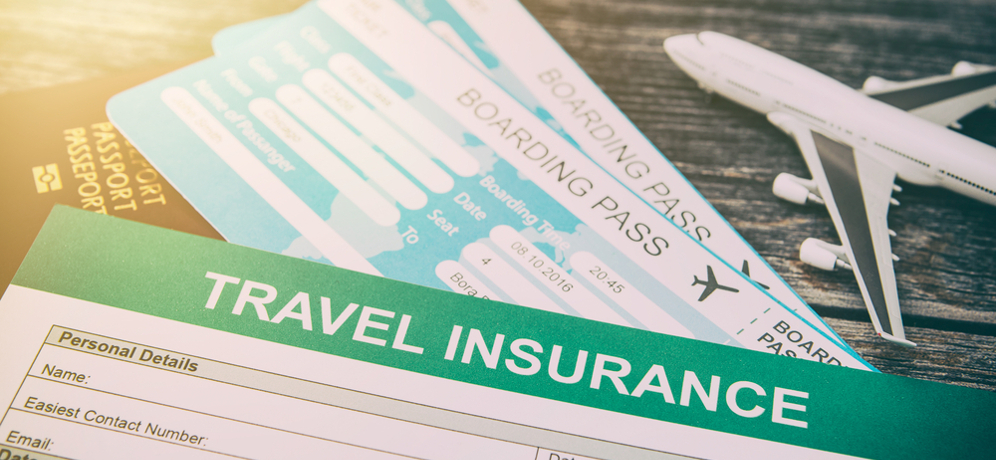
There is nothing worse than sending a client off on an amazing holiday only to have them call you about lost luggage or worse that are stuck at an airport. It’s an unfortunate mishap that you can’t control but you can advise travellers to take precautions.
As a travel consultant you play a vital role in the planning and research of a client’s trip. Based on our own experience you can provide them with valuable insight into their destinations but you must also enable them to make an informed decision regarding travel insurance. It’s one of those things that few travellers consider and then regret not taking when it’s too late.
Here Simmy Micheli from Travel Insurance Consultants (TIC) answers a few frequently asked questions about travel insurance.
Why is it important to have travel insurance?
By taking out travel insurance you are essentially covering yourself against travel risks such as lost or stolen luggage, cancellation cover (should you not be able to travel due to unexpected medical reasons) and most importantly, unexpected medical costs abroad.
Considering that the cost of a small medical emergency abroad could deplete ones entire holiday budget it offers you peace of mind. Something routine, like a visit to a GP in the UK, could cost upwards of £150 with hospital bills easily running into the millions. Travel insurance also provides a level of protection against currency fluctuations as, although one’s policy is paid for in local currency, all claims are incurred in foreign currencies.
What does a travel insurance policy cover?
A comprehensive travel insurance policy will provide:
- Emergency medical cover
- Losses incurred due to unforeseen cancellation or having to cut your trip short
- Death and disability cover
- Personal liability cover
- Luggage cover
Various other inconvenience benefits, like for instance costs incurred when being forced to extend your stay due to adverse weather.
Is travel insurance still necessary when travelling domestically?
Although most risks associated with travelling are seemingly mitigated when one travels within your country of residence, an insurance package specifically tailored to your clients’ needs could save them money in some unfortunate events.
TIC has a local travel insurance package available to SA residents travelling in and around South Africa where the benefits, such as car rental excess waivers, cancellation and curtailment cover and burial expenses, are specifically designed to address the risks and concerns of local travellers.
Will my client be covered for injuries sustained whilst participating in sporting activities like skiing or surfing?
All leisure sporting activities, like snow skiing, water skiing and scuba diving, are covered. As injuries are quite common, it is worth checking the maximum emergency medical cover and perhaps taking out additional medical insurance if needed. Any competitive or event sporting activities and other hazardous pursuits are however excluded as it’s classified under special cover which can be arranged by contacting TIC directly.
Are there any exceptions for more vulnerable travellers such as pregnant or elderly travellers?
Pregnant travellers will enjoy coverage on a standard policy up until the first day of the 26th week of pregnancy. Any babies born during the trip will not be covered. With senior passengers aged 70 and over, they will have to pay a higher premium and won’t receive coverage on pre-existing illnesses, cardiovascular diseases and cerebrovascular disease.
What if my client already has travel insurance through their credit card company? Is it possible to top-up their coverage?
Most banks provide basic complimentary cover when airline tickets are purchased with a credit card. It is therefore possible to supplement the coverage provided by a credit card company. In order to choose a suitable top up package to meet your client’s needs you’d need to determine how much the basic cover is. Available top up options include medical aid and credit card top up options.
What is the rule of thumb when it comes to when travel insurance should be purchased by?
It’s recommended that travellers purchase their chosen policies as soon as their trip has been paid for, as that means that they’ll enjoy cancellation coverage from up to six months before the trip. In terms of a specific date, there isn’t one as long as clients arrange it before they step onto the plane.
Are agents able to extend their client’s travel insurance policy should they extend their stay?
Yes, granted that the travellers haven’t claimed on the policy and it hasn’t yet expired.
TIP: Always include an insurance quotation in the travel quote that you present your client to show the cost thereof. Travellers are often under the impression that insurance will increase the cost of travel substantially and therefore choose to rather take the risk and not look into it.
As an agent you can earn 10% commission, which will be included in the quote, when you mail [email protected] with the FRAG number and confirmation email.

Pingback: 21 Things to Remember When Traveling For the First Time – The lifestyle of maria
Pingback: 6 Things to Do Before Your Flight - Drift Travel Magazine
Pingback: 5 Strategies To Have The Best Stress-Free Vacation - Women's Life Link
Pingback: Get Your Vacation Ready for this Summer
Pingback: Get Your Vacation Ready for this Summer | Orange Cova